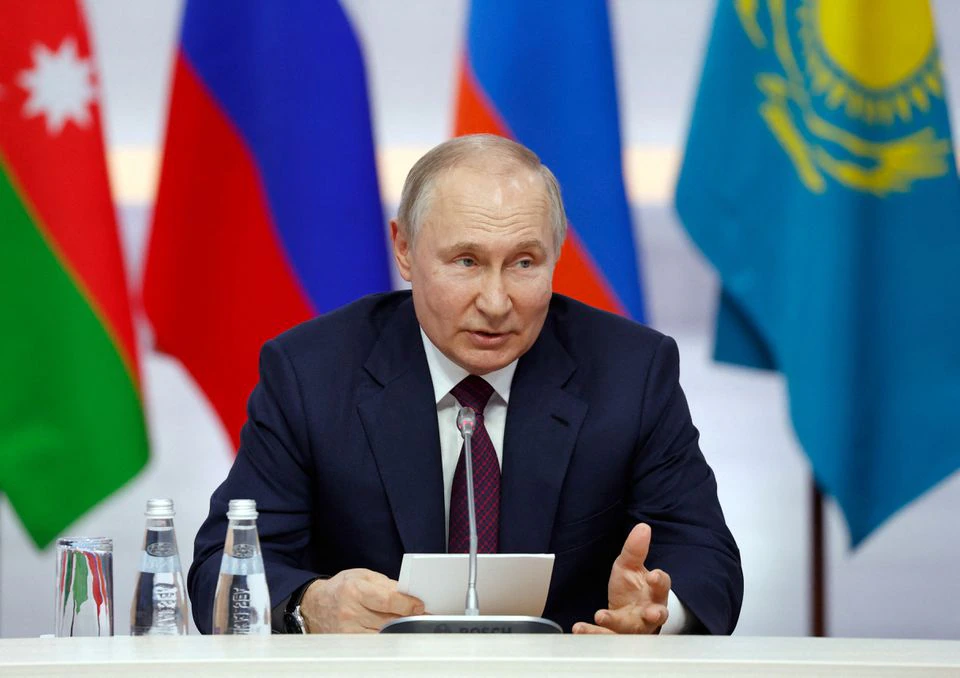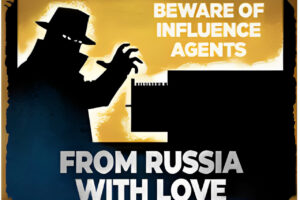BRUSSELS—European officials and experts are concerned that Russia could exploit the chaos surrounding the Hamas attack on Israel, pushing the Kremlin even closer to Iran, which is allied with the Palestinian militant group.
There is no sign that Russia provided material support—or even had advance notice—prior to the surprise attack on Saturday, which has left at least 900 Israelis dead and scores more kidnapped and taken into the Gaza Strip, where Israel has begun retaliatory strikes. Israeli Defense Minister Yoav Gallant said on Monday that he’d ordered a full siege of the area. “No power, no food, no gas, everything is closed,” he said.
But Hamas receives significant backing from Iran, an increasingly close ally of the Kremlin that has provided thousands of suicide drones for Russia’s invasion of Ukraine. The attack on Israel, one of America’s closest allies, not only has created the possibility of a two-front war in the Middle East but has also stretched U.S. and European armories and political willpower. The crisis comes at a time when the West was already having trouble summoning more ammunition and money to support Ukraine’s counteroffensive.
The “Russians would be interested in fragmenting the West and creating additional problems,” former Latvian Defense Minister Artis Pabriks said. “It all has to be done simultaneously. [The] Russians hope somebody will say it’s too hard.”
Russia is likely to tread lightly, given long-standing historical and diplomatic connections to Israel. Israeli Prime Minister Benjamin Netanyahu and Russian President Vladimir Putin have forged close ties over the years, with the Kremlin supporting Israel’s concerns over Hezbollah tunnels dug from Lebanon under the Israeli border and even forming a joint task force to discuss withdrawing all foreign troops from Syria.
The Kremlin has not condemned the Hamas attack. Israel has also stopped short of a full-throated condemnation of Russia’s war on Ukraine and took a neutral stance on Russia’s illegal annexation of the Crimean Peninsula in 2014, before condemning the move four years later.
Hundreds of thousands of Russian citizens reside in Israel, and around 1.5 million Israelis speak Russian. Israel has backed Ukraine diplomatically but has not provided weapons despite its $12 billion arms industry. Russia is hoping Israel will continue to stay out of the fray in that war, said Jonathan Lord, a senior fellow and director of the Middle East security program at the Center for a New American Security, a Washington-based think tank. “However, if Russia’s back is further and further up against a wall in Ukraine, Iran will be in a position to demand more,” such as asking Russia for air defense systems for itself or for its proxies; for advanced fighter jets; or even for help in filling gaps in its nuclear program.
“That’s going to have direct repercussions on Israeli security and the security of the region,” Lord said.
Though the United States has already pledged more support for Israel, the European response wasn’t immediately clear. On Monday, European countries are expected to huddle internally about the prospect of providing military aid to Israel, but many officials fear their governments are already tapped out from Ukraine. “We face a huge ammo shortage due to Ukraine,” said one German official who requested anonymity because they were not authorized to speak to the media.
European officials hope that Israel’s declaration of war will be a wake-up call for the continent about the threat of terrorism emanating from the Palestinian territories, which has gone on the back burner as Europe has focused on providing aid and centering its counterterrorism posture on Africa. “I hope the EU will drop any illusions regarding Palestine and the ruling powers there,” said a European diplomat speaking on the condition of anonymity. The European diplomat expressed particular concern about the Tehran-Russia link.
Pabriks, the former Latvian defense minister, said European governments are likely to help Israel assess the country’s intelligence failures in the lead-up to Hamas’s attack and determine which countries helped support the militant group. The Wall Street Journal reported on Sunday that Iran helped Hamas prepare for the attack and gave the green light for the assault a week ago. Iran’s conventional ground game has improved exponentially in the last decade.
Michael Doran, an expert at the Hudson Institute, told Foreign Policy that Iran’s Quds Force, a special unit of the Islamic Revolutionary Guard Corps that has helped build battle-ready proxies for Tehran around the Middle East, had assisted Hamas in improving its tactical acumen. Hamas was able to breach the Gaza fence and overrun Israeli villages, using paragliders and homemade rockets against one of the most technologically advanced militaries in the world.
Source : Foreign Policy















